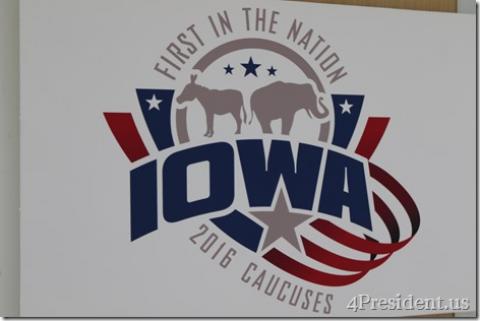The Iowa caucuses just supercharged the 2016 presidential race. Younger and lower-income voters drove Bernie Sanders into a head heat with Hillary Clinton. A record Republican turnout of white voters elevated an odd couple – two first term Cuban-American Senators – and deflated Donald Trump, the fear peddler.
The winnowing has begun as Mike Huckabee and Martin O’Malley dropped out, with more to come. And now the pace accelerates: New Hampshire next week, followed by South Carolina, Nevada and the Super Tuesday states, as more and more Americans discover that a presidential campaign has begun. Iowa will be dissected over the next days, but here are five quick takeaways the morning after
Sanders is for real.
Sanders ended in a stunning dead heat with Hillary Clinton, after starting in single digits in Iowa. Commentators suggest he was no Barack Obama (who is?), but the real measure of his achievement is that he overcame a Hillary Clinton campaign that Obama never faced. Determined not to be blindsided as she was in 2008, Clinton invested early and big in Iowa. She hired the best Obama operatives, and built an unprecedented ground operation. She identified, contacted, and mobilized her voters. And Clinton’s strengths in the voting population – older voters, older women, more educated, more affluent, experienced caucus goers – were exactly the voters most likely to show up on caucus night. Sanders’ strengths – younger voters, first time caucus goers, lower income – were the least likely to show up.
Despite this, the race ended in a dead heat. Sanders is for real. If he sustains his lead in New Hampshire, he’ll come out of the first states with a head of steam
Something is happening, but you don’t know what it is.
Clearly, young voters – the millennials – are attracted to the political revolution that Sanders is championing. Sanders beat Clinton by a staggering 84 to 14 among voters under 29, and 53-37 on voters 30 to 45.
This is the Obama generation. They mobilized to sweep Obama to victory in 2008, with many growing disillusioned along the way. But rather than checking out, many are doubling down, intent on building a movement to transform this country.
The leadership of virtually all of the mainstream Democratic linked groups – from the unions to Planned Parenthood and the Human Rights Campaign – have endorsed Hillary Clinton. Almost all of the party leaders, gatekeepers, deep pockets, cultural icons line up with Clinton. But the activist energy, the young, the searching are drawn to Sanders. Sanders trails Clinton among voters that are looking for a winner or care about experience. But he wins big margins among those who value most someone who cares about people like me (74-22), or is honest or trustworthy (87 to 10).
Sanders is providing the first clear, forceful, populist message and agenda that these voters have heard, focused on how our corrupted politics and rigged economy keep us from building a decent, vibrant country of opportunity – where health care is a right, college is free, workers are empowered, big money is curbed, and the rich and powerful pay their fair share. He’s begun to educate a generation — and to transform the activist base of the party. These voters will continue to organize and agitate when the campaign is over, whether Sanders wins or loses. A new force is getting built in American politics that will have lasting impact.
The big challenge for Sanders is to find entry points that will allow his message and candidacy to gain an honest hearing from people of color. At this point, he is trailing badly among African Americans and Latinos. But much of this is lack of name recognition, combined with a dearth of contacts to provide introductions. The big question is whether the young movements that are challenging the leaders of the black and Latino communities will decide that Sanders will provide a vehicle that will help them increase their reach. All that remains to be seen.
Imitation is the sincerest form of flattery.
Clinton, like any good politician, has adjusted to this. Her program has grown more progressive (against the TPP, against Keystone, for putting banksters in jail). Her rhetoric has grown more populist. Commentators noted that her closing argument in Iowa offered up angrier, more combative flare.
But it is not simply Clinton, but candidates across the country that are learning new lines, exploring new stances. Sanders will spark insurgent candidates across the country, arming them with argument and hope. This isn’t George McGovern who was focused on ending a grotesque war. This is the left’s version of Ronald Reagan, focused on transforming our political economy. The “era of big government is over” is over.
The Republican bane: the brat, the bully, the bantam.
Republican nabobs will search desperately for a fourth candidate to rise in New Hampshire. Iowa has elevated Ted Cruz, universally reviled by his colleagues, a damaged Trump, and Marco Rubio, the scripted lightweight who would make a good presidential advance man, but is unimaginable as president.
Iowa Republicans are disproportionately evangelical Christian, right-wing and a little nutty. But if this is the field, Republicans are in big trouble. They’ll grit their teeth, throw back a stiff drink, tighten their belts, and get back to it. But as with Sarah Palin, the mortification will be hard to overcome. I suspect a whole lot of money and effort is about to go into making Marco Rubio plausible. Good luck with that.


Spread the word